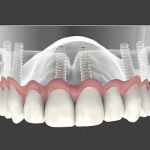Can a Dentist Prescribe Painkillers? Understanding Your Options for Pain Relief
When I first went to the dentist to get a tooth extracted, I had a lot of questions running through my head—especially when it came to the pain that might follow. One question I had was whether a dentist could prescribe painkillers to help manage the discomfort post-procedure. As it turns out, this is a common concern for many dental patients, and understanding the ins and outs of pain management is essential for anyone undergoing dental treatment.
1. The Role of Dentists in Pain Management
Before diving into whether dentists can prescribe painkillers, let’s first understand their role in pain management. As a dentist myself, I can confidently tell you that managing patient discomfort is an integral part of providing comprehensive dental care. Whether you’re getting a routine cleaning, a filling, or a more invasive procedure like a root canal or extraction, the goal is always to minimize pain and make the experience as comfortable as possible.
1.1 Common Procedures that Might Require Painkillers
There are certain dental procedures where pain management becomes critical. For example, extractions, deep cleanings (scaling and root planing), and surgeries like dental implants may cause discomfort after the anesthesia wears off. In these cases, your dentist will discuss pain management options with you before the procedure starts. Based on the procedure’s intensity and the patient's individual tolerance, pain relief could range from over-the-counter medications to prescribed painkillers.
2. Can Dentists Actually Prescribe Painkillers?
Yes, dentists can prescribe painkillers. After most dental procedures that involve cutting, extracting, or drilling into the teeth or gums, your dentist will likely offer a prescription for pain relief. The type and strength of the medication will vary depending on the procedure you’ve had, as well as your overall health and pain tolerance.
2.1 Over-the-Counter vs. Prescription Painkillers
For most routine dental procedures, dentists will recommend over-the-counter painkillers like ibuprofen or acetaminophen (Tylenol). These medications are effective for mild to moderate pain and are often sufficient for the discomfort that follows routine dental work. However, for more invasive procedures like wisdom teeth removal or root canals, a dentist may prescribe stronger painkillers, such as narcotics (codeine, hydrocodone, or oxycodone), especially if the pain is anticipated to be more severe.
2.2 How Dentists Determine the Need for Prescription Painkillers
As with any medication, dentists consider various factors when deciding whether to prescribe stronger painkillers. For instance, if you’re known to have a high pain threshold or if your procedure is expected to be straightforward and minimally invasive, your dentist may recommend only over-the-counter medication. However, if you're having a complex procedure, like the removal of multiple teeth, or if you have a low pain threshold, a prescription painkiller might be more appropriate. Dentists will always tailor their recommendations based on your medical history, any allergies you have, and your pain tolerance.
3. How to Manage Pain Effectively After a Dental Procedure
When it comes to managing pain after a dental procedure, it’s not just about taking medication. There are a variety of other steps you can take to ensure that you recover comfortably and as quickly as possible.
3.1 Ice Packs and Rest
After my own wisdom teeth extraction, my dentist recommended using ice packs to reduce swelling and discomfort. Applying an ice pack for 15-20 minute intervals during the first 24 hours after surgery can be incredibly effective in reducing inflammation and easing pain. In addition, getting plenty of rest helps your body heal faster, so be sure to give yourself time to recover.
3.2 Avoiding Hard Foods and Irritants
Another key aspect of pain management after dental procedures is avoiding foods and habits that could exacerbate pain or delay healing. I learned from experience that sticking to soft, cool foods for the first few days can help reduce irritation and discomfort. Avoiding things like hot beverages, alcohol, or spicy foods is also a good idea, as they can increase sensitivity in the affected area.
4. Risks and Precautions with Prescription Painkillers
While prescription painkillers can provide relief after dental work, it's important to be aware of the risks associated with their use. As much as I relied on the medication after some of my dental procedures, I made sure to follow the dentist's dosage instructions carefully. Overuse of painkillers, especially opioids, can lead to dependency or other complications. Always be cautious and communicate with your dentist if you feel the need for a stronger dose or if you’re concerned about side effects.
4.1 Understanding the Dangers of Opioids
Opioids like oxycodone or hydrocodone, which are sometimes prescribed for severe dental pain, carry an increased risk of addiction. Many dental practices are now mindful of the opioid crisis, and dentists may offer alternatives like non-steroidal anti-inflammatory drugs (NSAIDs) or suggest combining lower doses of opioids with other pain management strategies.
5. What to Do if You're Not Getting Enough Pain Relief
If you're finding that the pain relief provided by your dentist isn't sufficient, it’s important to communicate this with them. My own experience taught me that dentists truly want to make sure you're comfortable during your recovery. They can adjust your pain management plan, suggest alternative medications, or even recommend physical therapies like jaw exercises or oral rinses to alleviate discomfort.
5.1 Don’t Hesitate to Ask for Help
Whether it’s adjusting your prescription or offering other pain relief options, your dentist will be happy to address any concerns. If you're experiencing side effects or your pain worsens, don’t hesitate to follow up. An open line of communication ensures that you receive the best possible care during your recovery process.







 Rollins & Petersen Orthodontics4.0 (348 review)
Rollins & Petersen Orthodontics4.0 (348 review) Audubon Dental Associates Ltd5.0 (6 review)
Audubon Dental Associates Ltd5.0 (6 review) Doc Bresler's Cavity Busters4.0 (363 review)
Doc Bresler's Cavity Busters4.0 (363 review) Smileawhile Dental4.0 (159 review)
Smileawhile Dental4.0 (159 review) Montclair Perio & Implant Specialists: Anne Hartnett, DDS0.0 (0 review)
Montclair Perio & Implant Specialists: Anne Hartnett, DDS0.0 (0 review) Dr. Shubha Soni-Gaur5.0 (1 review)
Dr. Shubha Soni-Gaur5.0 (1 review) The Importance of Oral Health Education During Pregnancy for a Healthy Pregnancy
The Importance of Oral Health Education During Pregnancy for a Healthy Pregnancy Best Tips for Brushing Your Teeth Properly for Healthy Gums: Essential Techniques for Oral Health
Best Tips for Brushing Your Teeth Properly for Healthy Gums: Essential Techniques for Oral Health Why Skipping Dental Checkups Can Lead to Bigger Oral Health Problems
Why Skipping Dental Checkups Can Lead to Bigger Oral Health Problems Advantages of Porcelain Dental Restorations
Advantages of Porcelain Dental Restorations How Can Diabetes Cause Tooth and Gum Problems? Preventing and Managing Oral Health Issues
How Can Diabetes Cause Tooth and Gum Problems? Preventing and Managing Oral Health Issues Healthy Habits for Promoting Good Oral Health and Hygiene: Tips for a Healthy Smile
Healthy Habits for Promoting Good Oral Health and Hygiene: Tips for a Healthy Smile